![Best Fiber Supplement For Keto & Low Carb Diet [2024 Review & Buying Guide]](https://www.healthnerdy.com/wp-content/uploads/2019/03/Best-Keto-Fiber-Supplement-To-Take.png)
Ffiber can help improve gut health, benefit gut flora, boost weight loss, and lower the risk of heart disease, and type 2 diabetes.
Most Americans get on average 15 grams a day, which is less than the recommended amount!
And being on the ketogenic diet isn’t much different.
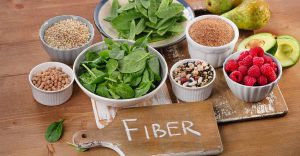 Many fiber-rich foods also contain carbs and carbs aren’t keto-approved.
Many fiber-rich foods also contain carbs and carbs aren’t keto-approved.
But, the good news is that certain foods are keto-approved and rich in prebiotic fiber!
Also, many fiber supplements on the market are a perfect fit for any keto dieter as they’re low in carbs and naturally high.
How to improve your digestion and overall health?
Let's find out...
I review the best keto fiber supplements!
Best Fiber Supplements for Keto (List for 2024)
Eating foods rich in fiber is essential even though a bit difficult on the keto diet.
That’s where you may need the best supplement for the keto diet.
I’ve gathered the best supplements you can use in your keto recipes.
Most of these are easily added to any meal on your menu, and they all provide you with unique and practical benefits.
#1 NOW Psyllium Husk Powder
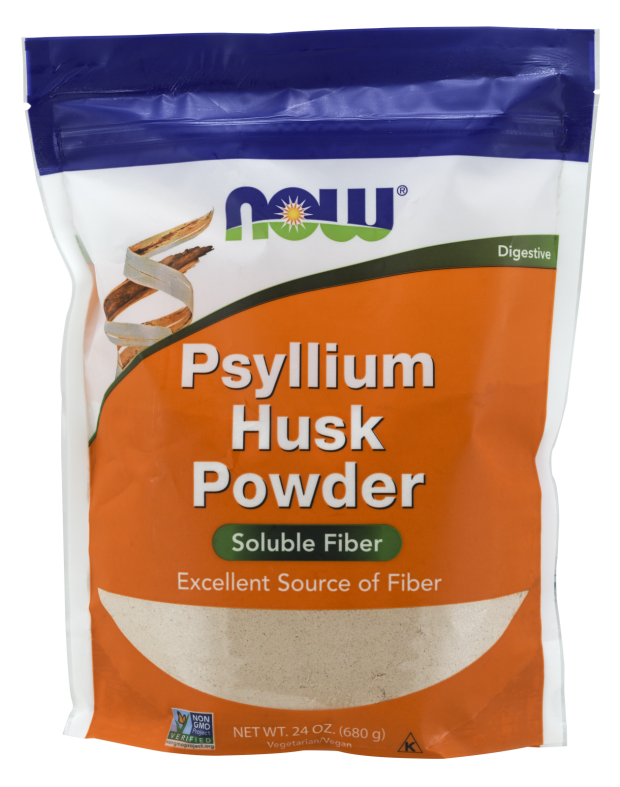
Derived from the husk of the Plantago Ovata plant, psyllium is a natural soluble fiber.
This supplement has mild laxative properties, which improve bowel movement and relieve constipation.
You can add husk powder to your beverages or baking recipes; it’s very convenient!
Pros:
- Aids constipation
- Boosts weight loss
- Increases feeling of satiety
- Promotes healthy gut flora
- Tested for quality
- Mixes easily
Cons:
- Not the best taste
.
NOW powder contains only 8g of carbs per serving which makes it an excellent addition to your keto diet.
The product is also tested for purity and quality regularly.
It’s a high-quality supplementation that’ll benefit your overall health and help you maintain balance!
#2 Viva Naturals Organic Ground Flaxseed - Sugar-Free
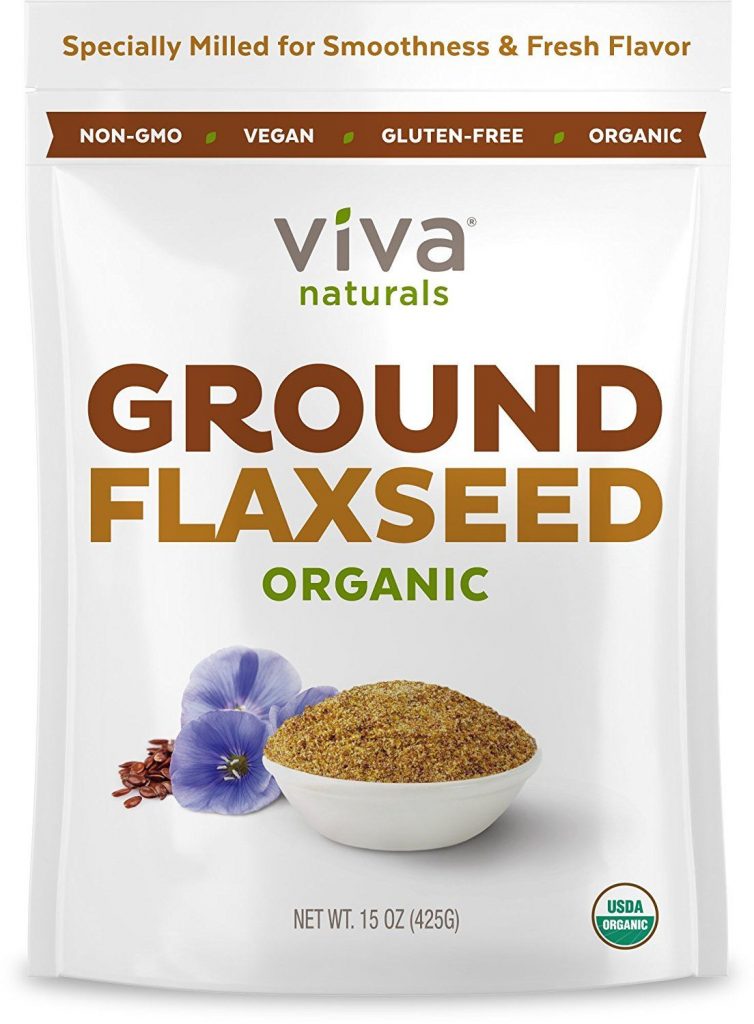
Ground flax from Viva isn’t loaded with carbs as many other supplements. It is 100% pure ground flaxseed that naturally has highly fiber content and low in carbs.
The omega 3-acids beneficially influence heart health, eye health, and boost the immune system.
Pros:
- Rich in omega-3 fatty acids
- USDA certified organic
- Sugar-Free
- Mixes easily
- Affordable
- Non- GMO
Cons:
- Spoils easily if not refrigerated
.
It is one of the lowest carb-fiber supplements available currently, with 1.5 grams of carb per serving.
It’s a very soft and light mill that can be easily added to any meal on your plan. Apart from insoluble fiber, this supplementation is loaded with other nutrients such as antioxidants.
#3 Heather's Tummy - Organic Acacia Senegal
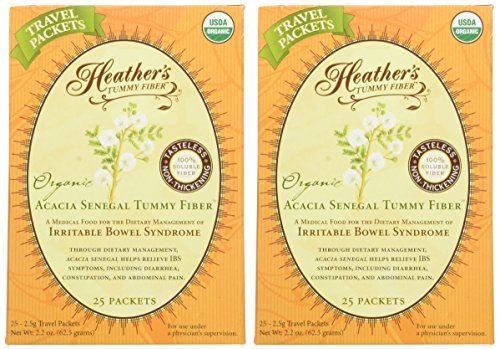
Made from completely natural and organic acacia powder, this type of supplementation is a natural remedy to some abdominal and digestive problems.
Heather’s Tummy has no color nor taste. What’s more, it can also act as a prebiotic and beneficially affect gut flora and health.
Pros:
- Reduces bloating
- Organic powder
- No taste
- Colorless
- Sugar and gluten-free
Cons:
- Causes cramping with some users
- Difficult to mix
.
It is a sugar-free supplementation that is easily used by the keto movement, low carb dieters, people suffering from IBS and chronic digestive issues. It contains only 2g of carbs and 10 calories per serving!
#4 Benefiber Daily Prebiotic
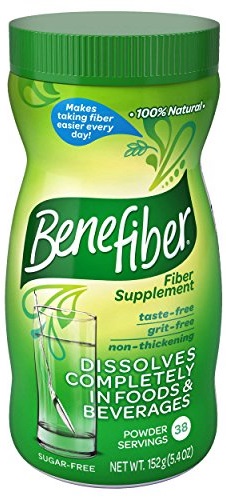
A completely natural prebiotic dietary fiber powder, this supplementation is tasteless, and it dissolves quickly.
It promotes healthy gut flora and bacteria as well as improves digestive health. Add it to water, shakes or any food; it works well as long as you’re consistent.
Pros:
- Minimizes digestion problems
- Organic
- Clear dissolving in water
- Tasteless and non-grainy
- Sugar
Cons:
- Contains a small amount of gluten
- Doesn’t work for all users
.
Benefiberisn’t primarily meant for weight loss. It helps you improve fiber suction and improve your digestion with 3g of fiber per serving.
#5 Bob's Red Mill Raw Whole Golden Flaxseeds - Low Carb
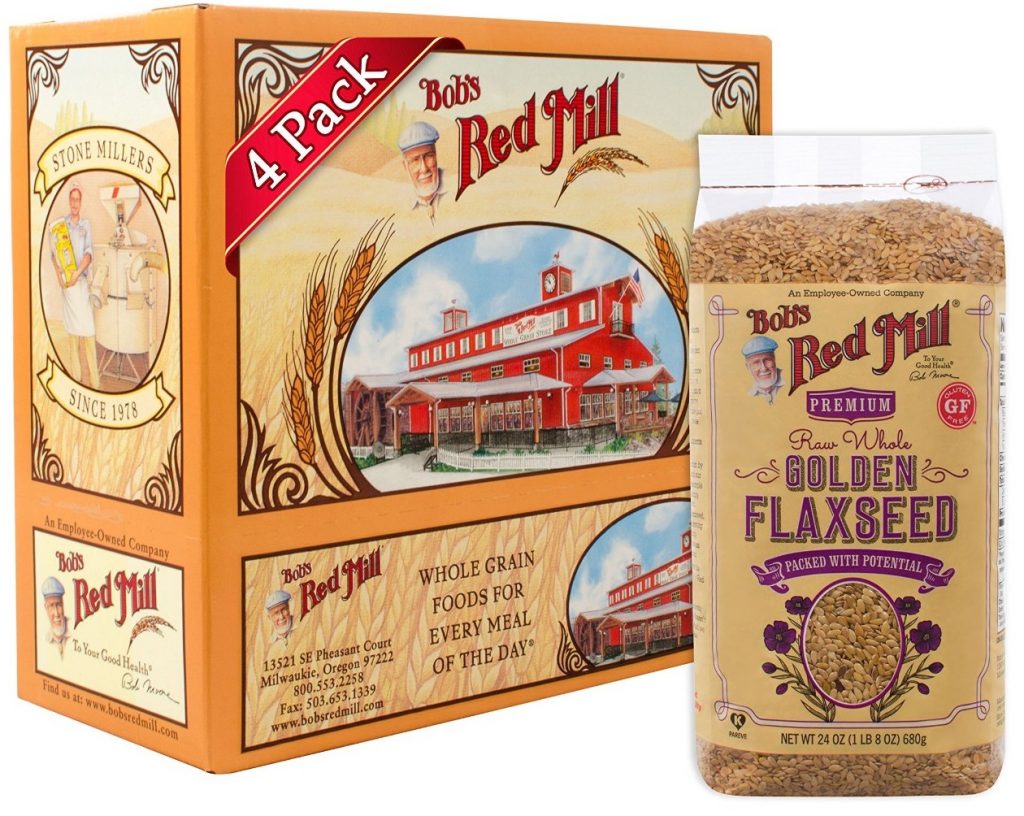
It is a good-quality supplement that can easily be added to any keto food on your menu, primarily beverages, and liquids.
While you have to grind this one yourself, it’s still very welcome to any who follows the ketogenic diet.
Red Mill Flax is rich in fatty acids, which promote a healthy heart and regulate blood pressure.
Apart from that, you get a daily dose of any type fiber with only 3g of carbohydrates per serving.
Pros:
- Excellent source of omega-3 fatty acids
- Natural ingredients
- Improves gut flora and health
- Low Carb
Cons:
- Not ground
.
While the supplement has bits of seed hulls in the ground, it can be easily added to anything: eggs, meat, yogurts, salads, and much more.
You can easily grind it with a simple coffee grinder. In any case, this supplementation is as close to carb-free supplements as it can be!
#6 Ancient Nutrition
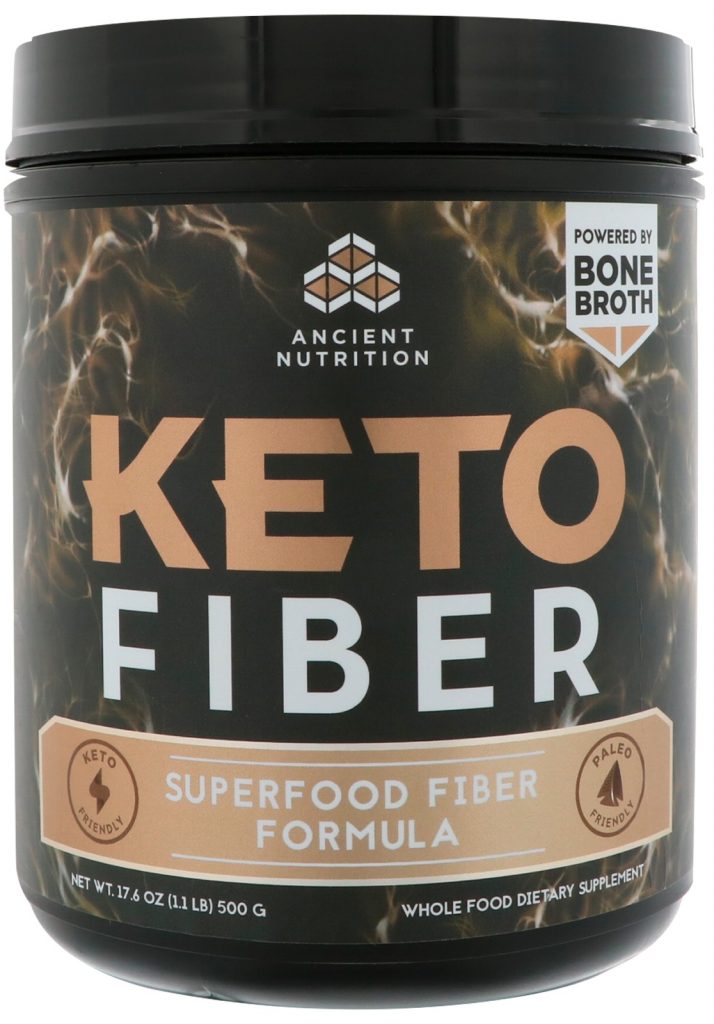
Ancient Nutrition KetoFIBER is a combo of flaxseeds, ginger root, MCTs, and other superfoods, this supplementation is more than appropriate for keto dieters and welcome addition to any low-carb or keto diet.
It provides you with enough fiber for healthy body function, promotes normal digestive function and it tastes better than you’d expect!
Pros:
- High-quality ingredients
- Contains MCT oil
- Mixes well into smoothies and shakes
- Maintains healthy gut
- Good taste
Cons:
- Dissolving in water is a bit tricky
.
With only 2 grams of carbs per serving, this product is more than a keto-friendly supplement.
It also contains 5 grams of fiber per serving and it combines many ingredients that overall contribute to a healthy and functioning system, including MCT oils.
#7 NOW Organic Acacia
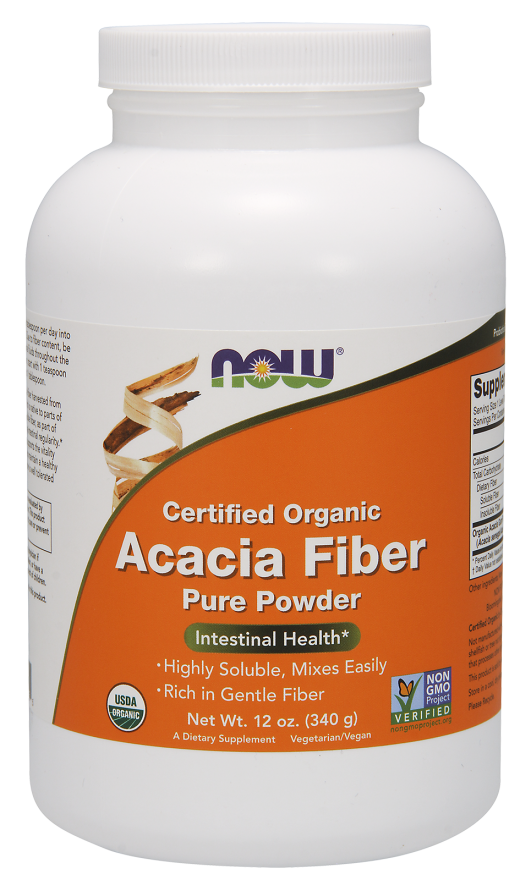
A soluble fiber, derived from the Acacia Senegal tree, acacia fiber is also known as gum Arabic and acacia gum.
This type promotes impressive health benefits.
American Journal of Cardiology reported that 15 grams of acacia fiber daily could help improve cholesterol and help reduce body fat!
Pros:
- Extremely high fiber content
- USCA certified organic
- Boosts weight loss
- Constipation relief
- Affordable
- Mixes well
Cons:
- Not the best taste
.
Coming from a trustworthy brand, this supplement is 100% pure and organic acacia powder that’s gluten-free and available at an affordable price. The fiber is very gentle, and the product contains zero net carbs!
What is Dietary Fiber?
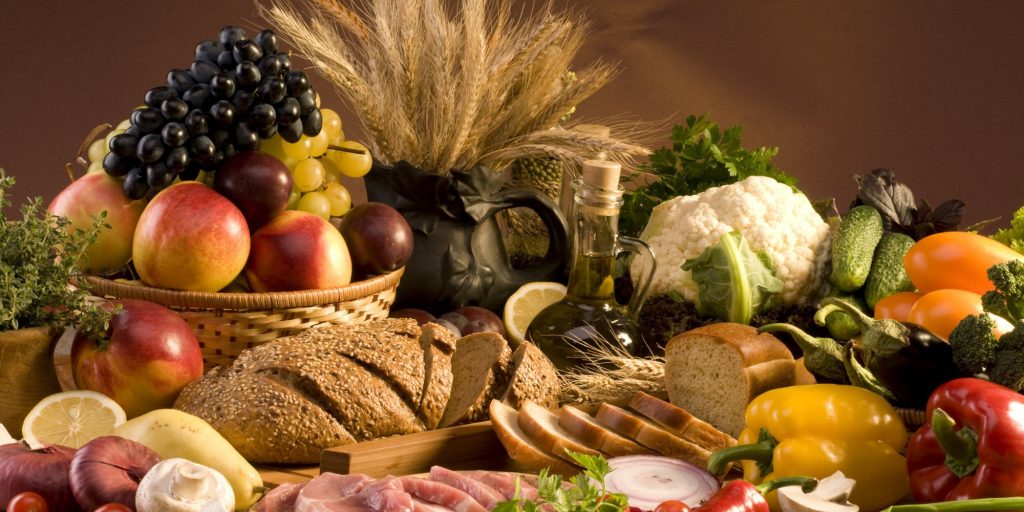
Dietary fiber is a type of carbohydrate that is found in various foods and plants, such as fruits, vegetables, cereals, lentils, nuts, and grains.
In other words, it helps us to feel full faster and longer, which makes it an excellent addition to any weight loss plan.
What’s more, it contributes to many health benefits: it improves the digestive system, helps to regulate blood sugar and cholesterol levels, prevents balances bowel movements, and maintains our gastrointestinal health.
Overall, there are two types:
- soluble (dissolves in water: beans, oatmeal, citrus fruits, apples, lentils)
- insoluble (doesn’t dissolve in water: wheat bran, cauliflower, brown rice, cucumbers, tomatoes)
A List of Foods Containing Fiber
Interested in the best source of keto-friendly fibers that are an appropriate low-carb and ketogenic fiber source for a keto meal plan?
Here’s a list of keto fiber foods that you can easily add to your keto diet menu today!
- Avocado
- High-Fiber cereals
- Collard Greens
- Broccoli
- Cauliflower
- Blackberries
- Unsweetened coconut
- Pumpkin seeds
- Flaxseed (Linumusitatissimum)
- Chia seeds
How Much Fiber Should I Take on a Ketogenic Diet? Fiber Intake!
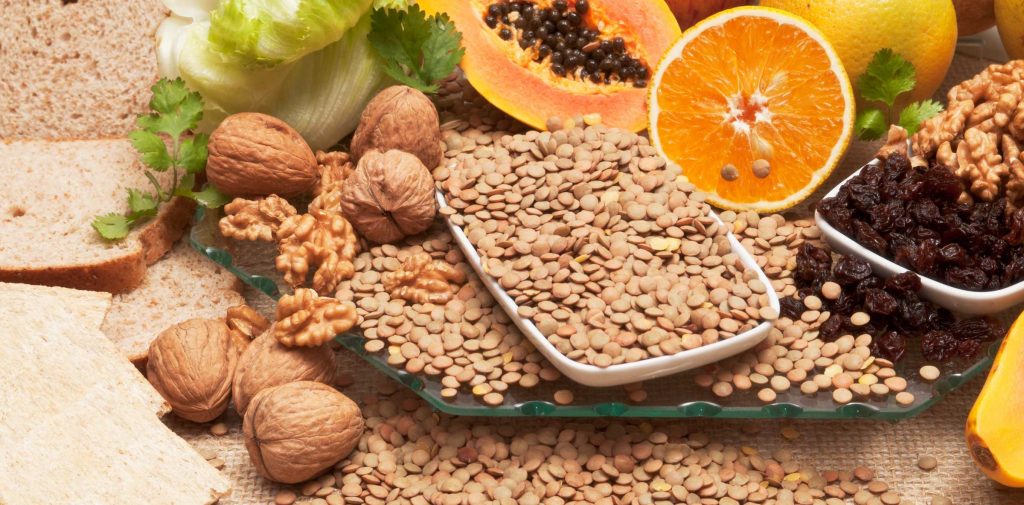
Consuming enough fiber is essential for overall health, but most people don’t eat enough fiber-rich foods daily even though the recommended amount is between 25grams and 30grams of fiber whether you’re keto or not.
But the problem is that many keto-approved foods aren’t rich-in. That’s why many people decide to take supplements to compensate for the lack of fiber.
Fiber Benefits
Following the ketogenic diet, it’s challenging to get your daily fiber without a carefully designed meal plan that makes sure you get enough dose.
After all, health specialists have been emphasizing the importance of this carbohydrate for years.
And we’re not talking only about vegetables and plants as fiber sources. Any high-quality supplementation equally helps you improve your overall health, such as:
- Healthy Gut Flora
The gut bacteria feed even though we can’t digest them.
And balanced and healthy gut means a healthy body: lower risk of diseases, and improved brain function, among others.
- Reduced Body Weight
Eating good-quality fiber on keto makes you feel full for longer.
It helps to balance blood sugar levels which helps to reduce cravings. What’s more, more fiber suction results in weight loss, according to this review study.
- Constipation
It is a serious problem when you are on keto and can be solved by eating more. This research showed decreased symptoms in adults in 77% of their subjects!
- Lower Risk of Heart Disease
Eating more fiber overall contributes to lower cholesterol levels and blood sugar. What’s more, it also lowers the chances of heart disease, stroke, type 2 diabetes, and obesity.
Tips for Improving Digestion on Ketogenic Diet
You can improve your overall health with regular fiber intake either from the food or low-carb fiber supplement.
Still, this is sometimes not enough to eliminate the gastrointestinal problems as they’re not always caused by the lack of fiber on your plate.
Here are some other tips that can help you improve digestion:
- Boost workouts to strengthen and move your muscles
- Stack up on electrolytes for good digestive health
- Drink a lot of water; half a gallon is the ideal daily amount
- Stick to a sleeping schedule to get enough sleep and let your body relax and recover
- Don’t take too much fiber; stick to the recommended amounts
Using Metamucil on Keto? What is It?
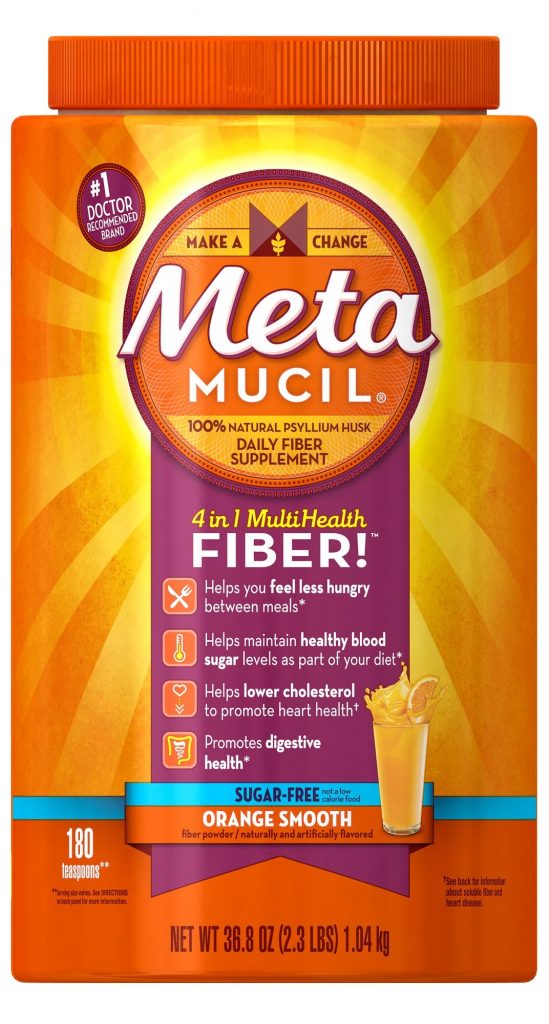
Metamucil is a form of husk Psyllium powder. It’s a soluble fiber supplement with a very high concentration of fibers.
It’s very similar to Benefiber, which contains wheat dextrin. On the other hand, Metamucil contains psyllium husk powder.
Still, these two have different effects on the body. If you’re looking for information on Metamucil on keto, you may find this study that reported the supplement successfully improves their levels of cholesterol and insulin.
Still, Benefiber contains fewer additional ingredients than Metamucil (except its natural form): no sweeteners, colorants, and other ingredients that may not be the best for the healthy ketogenic diet.
Benefiber on the keto diet may be more appropriate, but that is your choice entirely.
.
Is Metamucil Better Than Benefiber?
Before I get into how Benefiber and Metamucil compare in terms of GI health, I should explain why you want to eat fiber. "If you think about it, fiber is the only thing keeping our bodies in balance," says Dr. Jack A. Fata, an oral surgeon in Miami. "Amount Fiber is what keeps us regular. That's why we need more fiber as we age." That's not to say these supplements can't help with GI issues—they can. But there are some drawbacks. Benefiber, for example, is not a "solution" for constipation, like Metamucil, says Dr. Shannon M. Triggs, director of the Center for Adjuvant and Reconstructive Oral and Maxillofacial Surgery at NYU School of Medicine. "It is great for people who are constipated, as long as they know they're having an episode of it, and they're willing to take the product," she says. (We discuss how to identify and treat a case of constipation in the video below.)
[But] the problem is it is slow to work," says Dr. Francesco Natale, a University of Maryland gastroenterologist. "So if you are taking a fiber product and you are constipated for a few days, you may feel better but it won't necessarily get you to the regular place. If you are constipated for two weeks, you might notice more constipation because fiber is not acting fast enough." Dr. Natale says he likes Metamucil because it "doesn't have this inactive element and it will get you moving more quickly." But where does the issue lie between Benefiber and Metamucil? It's not the fiber that makes Metamucil a popular stool softener. The formula is highly refined and contains 0.5 grams of fiber per serving.
Why Am I Constipated If I Eat Lots of Fiber?
The first thing that people usually think of when they’re constipated is not eating enough fiber. The opposite is true. You should be eating plenty of fiber. Fiber is a really important part of a healthy diet. In fact, a high-fiber diet has been shown to help control your bowel movements. Here are some other possible reasons why you may be constipated: You ate too much fiber the last time you had an enema. Most fiber found in foods is absorbed and used by your body. But too much fiber can make you constipated because your colon isn’t getting the right amount of other nutrients that it needs.
You had a small bowel obstruction, which means that the bowel is not easily able to empty itself. You’re going through chemotherapy treatment and it has damaged your gut. You’ve recently been on a very strict diet, and it’s taking a while for your body to get used to it. You just eat too much high-fiber food, such as corn, potatoes, and bread. It could be that you’re eating too little fiber, even though you do eat plenty of food.
Is it Better To Take Fiber in the Morning or at Night?
We’ve all heard that a healthy diet consists of plenty of fruits, vegetables, and fiber. Fiber is the foundation of a healthy diet and was one of the primary recommendations of the Dietary Guidelines for Americans, the most recent and widely respected public health guidelines. Research in several population-based studies has shown that eating more fiber helps reduce the risk of heart disease and related conditions such as Type 2 Diabetes.
The Dietary Guidelines state that a diet that contains 25 grams of dietary fiber per day is best for heart health, and most dietary guidelines recommend that most Americans eat more fiber than that. However, the recommendations do not specify when or how much fiber is considered to be beneficial, but the guidelines provide some broad guidelines that seem to indicate that fiber is most helpful when eaten regularly. So, how much fiber should you eat? Which source of fiber is better? Let’s take a closer look. Why Fiber Is Good for Your Health The Dietary Guidelines note that fiber is good for your health for several reasons.
How Do I Completely Empty My Bowels?
These are commonly the questions asked by a potential bowler who's having a great deal of discomfort with urination and straining to defecate. The body needs to eliminate wastes from the colon. Depending on your age and level of activity, this process may be quite quick, particularly in a warm climate. With less active bowling, the process may take much longer. The anus is a muscular canal that allows waste to pass from the bowel, and from there it is directed into the rectum.
As the bowler ages, he may become less active or have other digestive issues. This may result in an obstruction to the passage of waste into the rectum. There are two possible treatment options. There are medications that can be prescribed by a physician. These medications help lubricate the muscles that surround the bowel. Then the waste can pass easily. A good treatment option for constipation is Senna oil, found at many health food stores.
Are Fiber Pills as Good as Metamucil?
Fiber pills are a supplement that promises to improve the health of your gut by absorbing nutrients through the stool (which has to travel through your digestive tract, then your lungs, then your intestines). People who've tried fiber supplements often report they help them maintain bowel regularity, with good results including improved stool consistency, less gas and bloating, and a reduction in constipation. But do fiber pills work like Metamucil? Can they do as well as Metamucil? And how do you know if they're as effective? Here's everything you need to know about fiber pills and fiber supplements, including what's in them, their potential side effects, and which ones are most effective.
Can You Take Fiber to Offset Carbs on Keto?
In a ketogenic (keto) diet, the primary focus is on reducing carbohydrate intake to induce a state of ketosis, where the body burns fat for energy. While fiber is a carbohydrate, it does not significantly impact blood sugar levels and can have a role in the keto diet. However, it's essential to understand the distinction between total carbohydrates and net carbohydrates when considering fiber.
Fiber is not typically counted as a net carbohydrate because it doesn't raise blood sugar levels. It passes through the digestive system without being absorbed or metabolized for energy. This means that you can subtract the grams of fiber from the total carbohydrates to calculate the net carbohydrates, which are the ones that impact ketosis.
Including high-fiber foods in your keto diet can be beneficial for several reasons:
- Satiety: Fiber-rich foods can help you feel full and satisfied, reducing overall food intake.
- Digestive Health: Fiber supports healthy digestion and can prevent constipation, a common issue in low-carb diets.
- Nutrient Intake: Many fiber sources are rich in essential vitamins and minerals, which can help meet your nutritional needs.
- Steady Blood Sugar: By minimizing blood sugar spikes, fiber can help maintain stable energy levels and reduce cravings.
Common high-fiber foods that are low in net carbs include leafy greens, non-starchy vegetables, avocados, and some nuts and seeds. While fiber can be a valuable addition to a keto diet, it's important to keep overall carbohydrate intake within the recommended range (typically 20-50 grams of net carbs per day) to maintain ketosis. Consuming excessive fiber may inadvertently increase carbohydrate intake, affecting ketosis.
In conclusion, fiber can be included in a keto diet to help with satiety, digestion, and overall health. It's not considered a net carbohydrate and doesn't significantly impact blood sugar levels. When consumed wisely, fiber can be a useful component of a balanced ketogenic eating plan.
Frequently Asked Questions
How to Get Enough Fiber While on Keto?
Achieving adequate fiber intake while adhering to a ketogenic diet presents a unique challenge due to the restrictive nature of the diet, which typically limits carbohydrate consumption. However, prioritizing fiber-rich foods and strategic dietary choices can help individuals on keto meet their fiber needs while reaping the benefits of ketosis.
One strategy involves incorporating low-carb, fiber-rich vegetables into meals. Non-starchy vegetables such as leafy greens (spinach, kale, arugula), cruciferous vegetables (broccoli, cauliflower, Brussels sprouts), and avocados are excellent choices. These vegetables are not only low in net carbs but also packed with fiber, vitamins, minerals, and phytonutrients crucial for overall health and well-being.
Additionally, nuts and seeds can be valuable sources of fiber on a ketogenic diet. Options like chia seeds, flaxseeds, almonds, and pumpkin seeds are relatively low in net carbs while providing a significant amount of dietary fiber. Incorporating these nuts and seeds into snacks or meals can boost fiber intake without significantly increasing carbohydrate consumption.
Psyllium husk is another noteworthy fiber supplement that can be beneficial for individuals on keto. It is rich in soluble fiber and has been shown to promote digestive health, regulate bowel movements, and support satiety. Adding psyllium husk powder to keto-friendly recipes, smoothies, or beverages can contribute to meeting daily fiber goals.
Furthermore, certain low-carb fruits can serve as sources of fiber on a ketogenic diet. Berries such as raspberries, blackberries, and strawberries are relatively low in net carbs compared to other fruits and offer a good amount of fiber per serving. Incorporating these fruits into meals or enjoying them as snacks can help increase fiber intake while staying within keto-friendly carbohydrate limits.
Lastly, focusing on whole, minimally processed foods is key to obtaining sufficient fiber while on a ketogenic diet. Opting for whole food sources of fiber over processed or refined products ensures that individuals not only meet their fiber needs but also benefit from the array of nutrients and health-promoting compounds found in these foods.
In conclusion, while achieving adequate fiber intake on a ketogenic diet may require some strategic planning, it is certainly achievable through the inclusion of fiber-rich vegetables, nuts, seeds, fruits, and supplements like psyllium husk. By prioritizing these fiber sources and making mindful dietary choices, individuals can maintain a well-rounded ketogenic diet that supports both metabolic health and digestive wellness.
Which Fiber Supplements Is the Best?
Whether you’re on a keto diet or not yet, supplements are a must.
You aren’t able to get enough fiber with your meal plans, yet you need it if you want to maintain a healthy body and lose weight at the same time.
Regular bowel movements are more important than you may think; a healthy gut means a healthy body and it can help you get there.
Yes, other factors can negatively impact your digestion, such as lack of sleep and water.
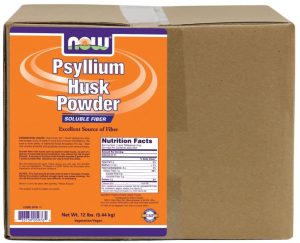 Make sure to check all the steps double to see if you’re on the right track. In other words, listen to your body.
Make sure to check all the steps double to see if you’re on the right track. In other words, listen to your body.
You can stack up on supplements, but always make sure to eat plenty of food that contains fiber; there is plenty keto-approved for consumption.
Of all the supplements we reviewed, we found the one we think to be the best since it’s practical, affordable, safe to use, and comes from a reliable company.
Our favorite best fiber supplement is by far NOW Psyllium Husk Powder.
It packs all the benefits of a fiber powder yet it’s the easiest to take. It’s also useful for some health issues, such as bloating, digestive problems, diarrhea.